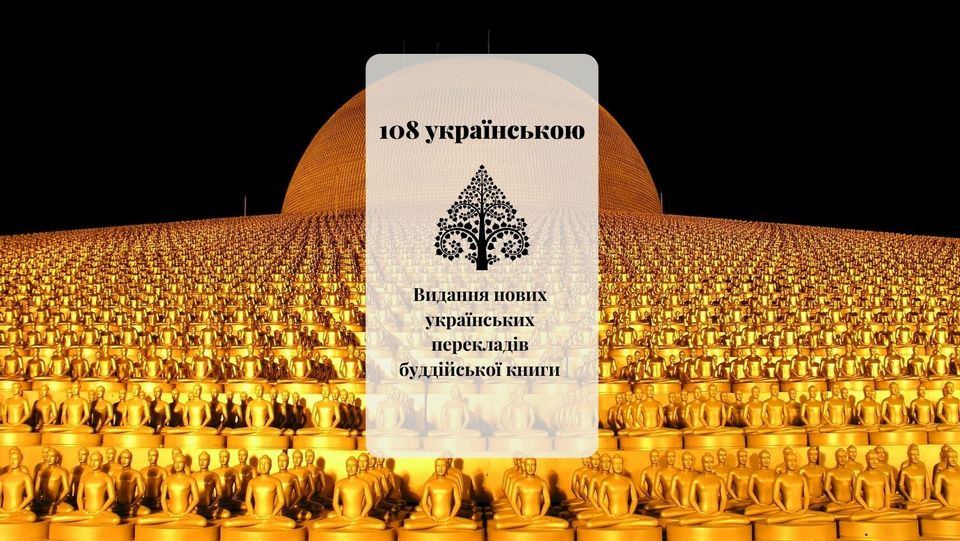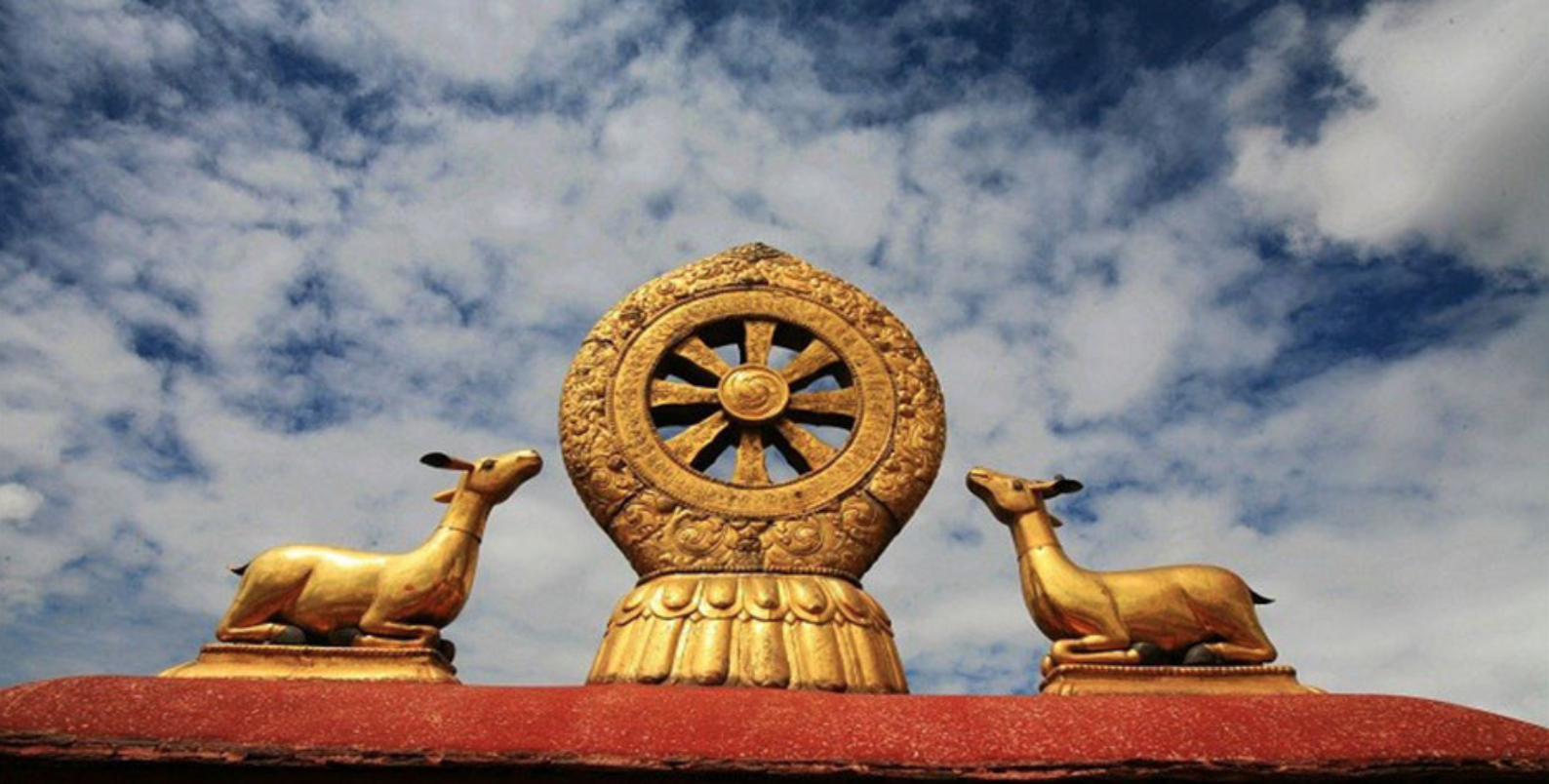‘108 in Ukrainian®’ Initiative for Translating and Publishing Buddhist Literature
New Initiative for Translating and Publishing Buddhist Literature :

Introduction
With a palpable sense of excitement and profound joy, we are thrilled to unveil an extraordinary initiative that has the potential to transform the landscape of spiritual literature in Ukraine. The “108 in Ukrainian®” project represents a concerted effort to bring Buddhist wisdom to the forefront of Ukrainian culture through translation and publication. This collaborative endeavor, driven by dedicated editors and translators from various Buddhist communities across Ukraine, aims to pave the way for a vibrant stream of Buddhist literature in the Ukrainian language. In this article, we delve deep into the heart of this remarkable initiative, examining its significance, motivation, and the compelling reasons why it has captivated the attention of the Ukrainian populace.
The Relevance of Buddhist Literature in Ukraine
In a country where Buddhism is embraced by only a minuscule 0.2% of the population—comparable to the adherents of Islam, Hinduism, and paganism combined—it’s astonishing that more than half of individuals who identify as believers do not associate themselves with any specific religious tradition. This unique openness presents an intriguing opportunity for the infusion of philosophical ideas and spiritual teachings from diverse sources, including Buddhism. Despite the statistical odds, these figures indicate a receptive mindset, one that’s eager to explore novel perspectives.
Surprisingly, the landscape of Ukraine is fertile ground for the cultivation of Buddhist thought. The country’s ongoing struggle against Russian aggression and its fervent quest for self-identity amidst adversities have contributed to a growing interest in spiritual and philosophical teachings. It’s within this socio-political context that the teachings of Buddhism have found a fertile ground for germination.
Aligning with the Spirit of Modern Ukraine
A closer examination of Ukraine’s social and cultural dynamics reveals an undercurrent of fascination with esotericism and mysticism, as well as a heightened desire to comprehend the rational underpinnings of religious ideologies. In this intricate tapestry, Buddhism emerges as a formidable contender due to its empirical approach, logical foundation, and experiential wisdom.
The popularity of holistic well-being practices, mindfulness, yoga, and meditation in Ukraine underscores the synchronicity between contemporary societal pursuits and the core tenets of Buddhism. This alignment manifests not just as a fleeting trend, but as a resounding echo of Buddhism’s relevance to modern Ukrainian sensibilities.
The Quest to Create a Unique Literary Landscape
At the heart of the “108 in Ukrainian®” initiative lies an ambitious aspiration: to curate a comprehensive library of Ukrainian translations of contemporary Buddhist authors. These translated works aim to unravel the rich tapestry of Buddhist thought, distinct from the interpretations offered in Russian translations. The initiative recognizes the intricacies of neurolinguistic nuances, where the choice of words profoundly influences the reception of profound teachings. The team behind this initiative is committed to crafting translations that resonate authentically within the cultural and linguistic context of Ukraine.
However, this endeavor transcends mere translation. It aspires to bridge the gap between esotericism and accessibility. Through simple and logical explanations, the initiative seeks to demystify complex Buddhist concepts, rendering them accessible to a broader readership. By doing so, the “108 in Ukrainian®” initiative aspires to introduce meditation not as an abstract concept but as a practical tool for enhancing daily lives.
Embracing the Teachings for Everyday Life
Beyond translations, the initiative is dedicated to showcasing the lives of modern Dharma teachers—individuals who embody the teachings of Buddhism in their daily experiences. This approach, in contrast to esoteric narratives, strives to humanize the teachings, making them relatable to the Ukrainian populace. The initiative aims to shed light on Buddhist practices that extend far beyond cushion-seated meditation, encompassing a spectrum of methodologies aimed at fostering happiness and personal fulfillment.
Conclusion
The “108 in Ukrainian®” initiative stands as a testament to collaborative synergy, where Buddhism’s timeless wisdom intersects with contemporary aspirations. Through translations, publications, and the dissemination of teachings, this initiative seeks to enrich lives, cultivate mindfulness, and elevate the collective consciousness of Ukrainian society. By unlocking the treasure trove of Buddhist wisdom, the initiative is poised to shape the spiritual landscape of Ukraine, fostering a deeper understanding of life’s intricacies and the pursuit of meaning.
'108 in Ukrainian®'




